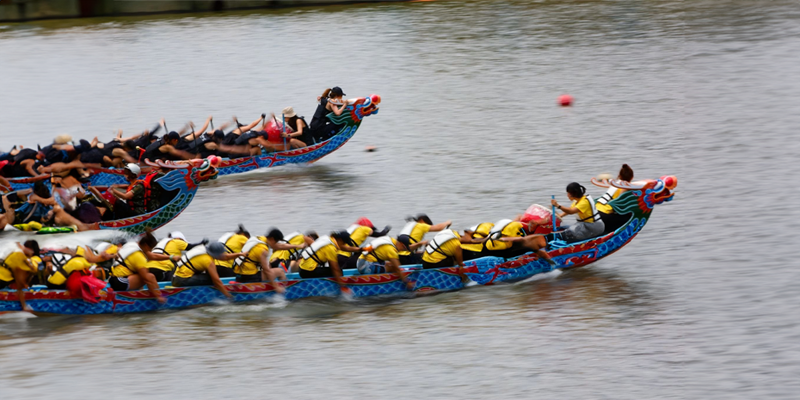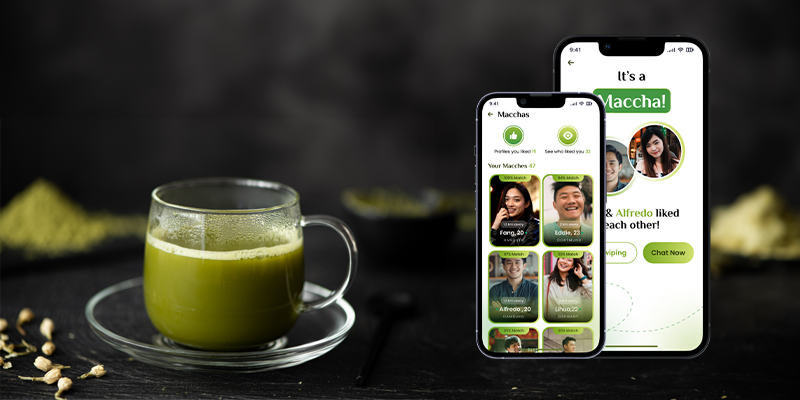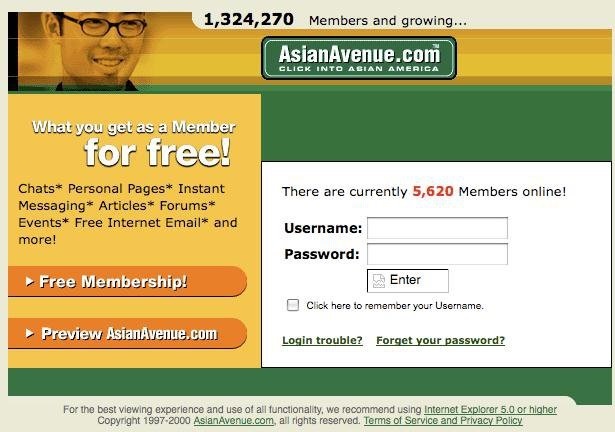
Why Dragon Boating is So Special for the ESEA Community
If you’re Asian, you probably have tried Dragon Boating. Perhaps it was a one-off event, or you were committed to a club and attended regularly. Dragon Boating has been around for 2,000 years, and its spirit is kept alive by young overseas Chinese, Vietnamese, Filipinos and other ESEAs. Dragon Boat Festival falls on the 5th day of the 5th month in the Lunar Calendar. Today, races and events are managed by the International Dragon Boat Federation. Why do young people still participate in Dragon Boating, despite it being a niche sport in Western countries? Meeting Friends while Keeping Fit A Dragon Boat typically sits 20-22 people. The speed of the boat depends on the team paddling in rhythm. A drummer bangs the drum at the front and the whole boat “reaches” and paddles in sync. A cultural sport, it’s likely that other Asians participate. This attracts those that want to share the cultural sport with others from a similar cultural background. Dragon Boat clubs usually have other fitness related events to prepare for competitions - from group gym sessions, to other related sport events, such as badminton. Joining a team opens up many other physical activities, which promotes healthy living. This is a major attraction for people who prefer socials which don’t include going to a bar and getting drunk. The International Dragon Boat Federation organises competitions internationally, and teams will travel abroad together to compete, which further strengthens the bond in the team. Dragon Boating has built such strong connections, this has even led to marriage! It is well known in the community that some couples met on the boat. Many clubs allow paddlers to join on a pay as you go basis with no commitment. However, if you find yourself paddling frequently, membership may work out cheaper. Choosing the Right Club A simple Google search will reveal clubs near you. But which one do you join? Firstly, finding a club that is located near you is important, to ensure you can get to training easily. However, some will be more serious than others. If you are a ‘social paddler’, who wants to paddle just for fun, then there will be teams who take a more relaxed approach. However, there will be clubs who are very serious about competing. They may have a ‘second team’ for the more casual paddlers. The best way to understand which is the right fit is to talk to the captains, and have a trial session. Dragon Boat racing often opens the door to many other socials - from kick off parties, to international trips. If you’re looking to meet other Asians, it can be a fantastic way to find new friends (or more!). These events aren’t just about the sport; they’re about building bridges between different cultures and celebrating our unique identities. Maccha: Promoting Cultural and ESEA Events Dragon Boating is just one way to meet other Asians. If you have other interests, you can discover something that suits you at Maccha. We’re all about pushing cultural events and activities that bring the ESEA community together. Whether it’s Dragon Boating, food events, or club nights, our community app serves as an ESEA hub for sharing these incredible experiences. We believe in building links among the ESEA community and backing local projects that celebrate our varied heritages. Through the Maccha app, you can quickly find and join cultural events, meet new friends, and get involved in activities that show your shared identity. Let’s amplify our voices and showcase the beauty of our cultures together!

The Parallels Between Maccha’s Community and Matcha Tea’s Stories
Maccha, or Matcha, perhaps its more well known spelling - has disrupted the beverage market in the West. Its existence dates back to the 12th Century and became popular in Japan, when it was banned in its native China. Since then, the product has been commercialised and has travelled to the West, where it is consumed in various forms - in lattes, cakes and ice creams. And in the spirit of this, the Maccha Community App was born. Maccha is a space for the East and Southeast Asian (ESEA) community to come together, share, and support each other. Just like the tea, the Asian diaspora is thriving in the West, yet many seek a way to find others that hae gone on similar paths. In 2024, Maccha’s founder realised there was a missing piece for ESEA people, especially in Europe, where the Asian diaspora is scattered across small pockets. You could find people on Facebook, maybe, but it wasn’t quite there. Instagram was all photos and little conversation, and dating apps had a large population based in Asia. There was no single place to connect on a deeper level. So, Maccha took the principles of what matcha tea stands for – community, connection, and calm – and created a digital home for the ESEA community to vibe, chat, and connect in a way that felt real. Maccha Caters For Everybody In The Community For students looking to connect with those from a common background, Maccha provides the platform for information sharing. We also aim to work with university organisations, such as ABACUS to give them a space to publicise their events and latest news. For professionals with little time to meet new people, Maccha’s profile matching tool makes it easier to connect with like-minded individuals. Our filters include age, profession and educational background, so you can cut the chase and start chatting with people who you have a lot in common with. Perhaps you’re looking for a serious relationship, and finding someone from the same values and culture is important. Maccha provides the tool to access our community. When you register, you can state that you’re looking for a relationship, so you only see profiles of others who are looking for the same thing. What Makes Maccha Different Maccha isn’t just a repurposed social app; it’s a purpose-driven platform. Here’s what makes it truly special: Swipe to Chat and Meet: Find ESEAs near you - whether you are looking to just meet friends, or something more serious - we cater for all your needs Forums to Talk with those who just get it: Got thoughts on the latest ESEA dramas? Want to share your experiences dealing with post-Covid perceptions? Maccha’s forum is the place for it—real conversations, no pretence – just a spot for honest discussions. Spotlight on ESEA Businesses: Love supporting ESEA-owned brands or discovering new products? Maccha’s got a whole section for businesses from the community, giving them a space to promote what they do. From skincare to food, this is where you can discover what the community’s got to offer. In addition, Maccha is committed to giving back. We commit to reinvesting in the community through sponsorships, giving ESEA businesses a platform, and collaborations. We want to lift up the community through all that we do. Starting in the UK, But Not Stopping There The Maccha journey starts in the Europe, but the vision’s bigger than that. ESEA communities around the world share experiences, and the dream is to expand the app to bring them all together. But for now, we are focused on the UK and Europe. If you like our app, please support by leaving a positive review, telling your friends about us, and staying active! The Future of Maccha This is just the beginning for Maccha. It’s only going to grow, with the goal of becoming the go-to space for the ESEA community. Just like matcha tea, which balances tradition and modern life, Maccha, the Asian community app, is here to bring people together in a way that feels right for today’s world. So here’s to Maccha – an app inspired by tea, built for community, and ready to make a difference. And if you’re ESEA and looking for a place that just gets it, Maccha’s the app for you.

Asian Community Sites & Forums: Where They Went & What's Used Now
In 1991, the internet was launched to the public, changing the way we would connect forever. Asian Avenue, a platform connecting Chinese ethnic groups and the broader Asian diaspora, launched in 1997, just 6 years later. This was run by co-founders Benjamin Sun, Peter Chen, Grace Chang, and Michael Montero. A year later, the New York Times described it as “unusually successful.” At its peak, the site had 2 million users, with more than 5,000 online at a time. It became a hub for the American Born Chinese, Australian Born Chinese, British Born Chinese, and other Chinese people groups to speak out. In 1999, SKYY vodka displayed an advert of a Caucasian woman with chopsticks in her hair, and many users called out cultural appropriation. What was particularly unique about Asian Avenue was that the user page was completely bespoke. Most young people, especially from the ESEA community, learnt HTML specifically to create their webpage. Moreover, there would be a profile of the week, where the users with the most views would feature on the homepage. Users would communicate through the guestbook, leading to new friendships and fostering community ties similar to those found in the London Chinese Community Centre. The dynamic profile pages and excitement of user of the week created a buzz. Asian Avenue was a pioneer in connecting Asians online and became a virtual meeting space to discuss topics and cultural events in the UK and beyond. There is currently no information about why Asian Avenue disappeared. The Rise of Community Forums The early 2000s was an era of discussion forums. At a time when Dance Dance Revolution became popular, this led to the launch of the Dance Games forum. Although not strictly for Asians, many of the fans were from the community. They would arrange to meet at arcades and spend their weekends on the DDR machines, and afterwards go to bars and clubs. This became a regular routine, building a network of friends which would still stand the test of time. British Born Chinese Discussion Forum vs. DragonLink Then came the British Born Chinese Discussion Forum and DragonLink. Both were dedicated websites for the Asian community, with the former more focused on British Chinese, and the latter for all “Orientals in the UK”. This was before the term became derogatory. There was some stereotyping and healthy competition between the two. The British Born Chinese Discussion Forum was considered more mature and civilised, whereas DragonLink was considered more for younger party-going Asians. Much of the community parties were promoted on these forums. Both would organise their own ‘Meets’, and ESEA club night organisers would advertise on the forums. DragonLink would advertise community news. There was a dedicated user profile page, where users could rate each other based on attractiveness. A girl with perfectly straightened hair in a red dress looking to the side would consistently feature over 9/10. On both forums, users would post in dedicated topic boards and were very active in keeping up with discussions. Facebook’s Dominance and the Decline of Forums Facebook launched in 2004 and became hugely popular. Discussions became stagnant on these forums as users connected with each other directly on Facebook. Users were more hooked on checking each other’s profile pages with personalised updates rather than discussing topics on a forum. As the engagement dwindled, the British Born Chinese discussion forum and DragonLink created pages in Facebook Groups. This saw a migration of discussions, leaving the original sites derelict. Fragmentation in the 2020s Fast forward to the 2020s and Facebook usage has decreased amongst all age groups, with only 1/3 of under 25s reportedly using the site. As Instagram rules supreme, this platform has fragmented the community connection experience. Today, the Asian diaspora follows some dedicated Asian community Instagram pages with event updates, but there is no central hub to promote these. Moreover, Instagram does not feature a community forum, so the community don’t have a space to discuss topics. The British Born Chinese group on Facebook boasts 16.5k users, but the user experience is somewhat less organised and tailored to the community. The Future: Maccha's Role in Reconnecting the Community Maccha aims to bridge the gaps faced by the ESEA community and Asian diaspora in building connections, finding friends, and sharing real-life experiences. In a time when traditional hubs like the British-Born Chinese Forum and the London Chinese Community Centre have shifted focus, Maccha provides a modern digital platform where American-born Chinese, Australian-born Chinese, British-born Chinese, and all ESEA members can connect in one place. With dedicated spaces for discussion, discovering cultural events across the UK, and organised meetups, Maccha paves the way for a new chapter.